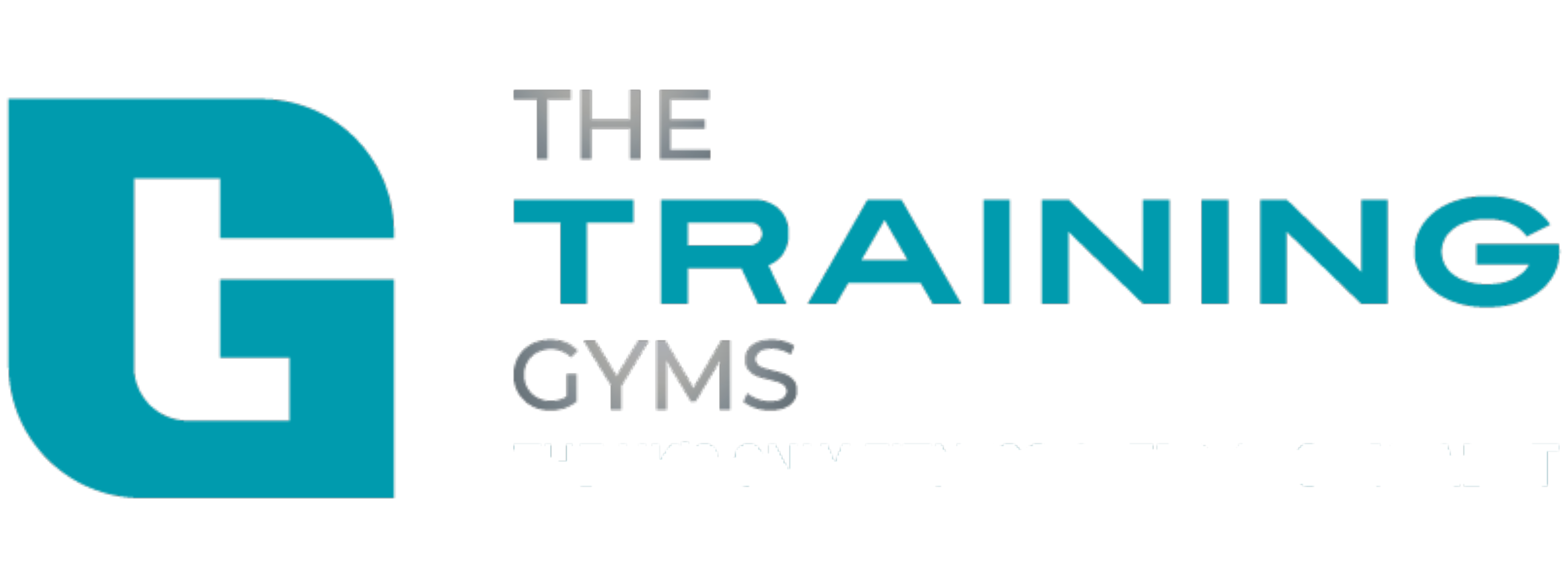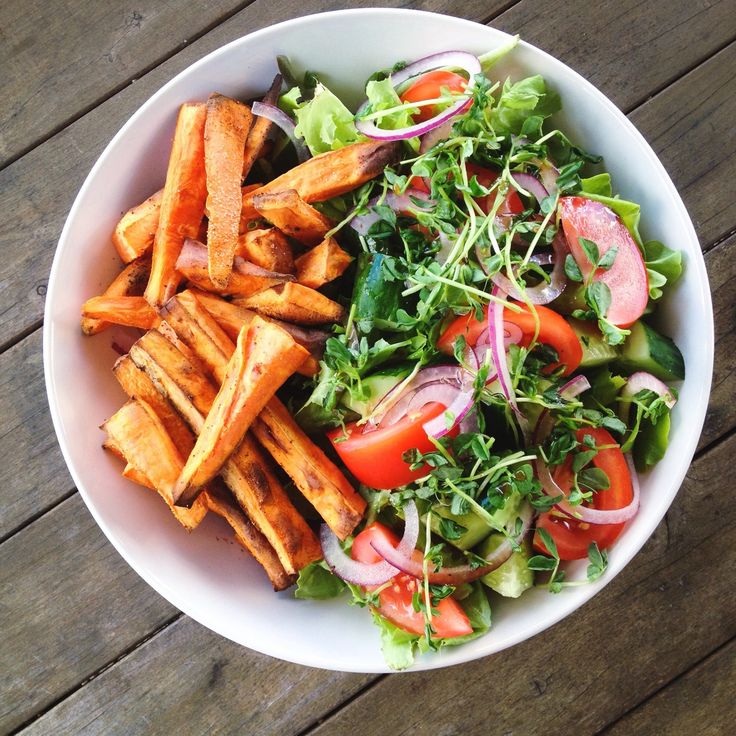Christina: 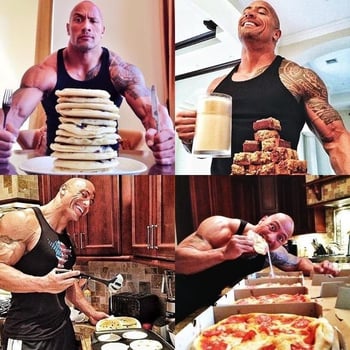 This is Christina with the DVCC and today I’m joined with Nathan, trainer from the DVCC’s Milton Keynes location, to discuss cheat meals, or reset meals, what they are and how you can use them to improve your body.
This is Christina with the DVCC and today I’m joined with Nathan, trainer from the DVCC’s Milton Keynes location, to discuss cheat meals, or reset meals, what they are and how you can use them to improve your body.
Christina: Nathan, you wouldn’t normally expect to hear a personal trainer talk about cheating when it comes to meals, because when you hear the words ‘cheat meals’, a lot of people think about junk food or fast food. But that would be incorrect, is that right? What exactly is a cheat meal?
Nathan: Yes. A cheat meal would be basically a meal which allows you to stray from your normal way of eating or your normal nutrition protocol. So, ideally, you’d want to have something that’s not too unhealthy; a lot of people take cheat meals one step too far and go completely all out and eat as much junk food as they can. It should really be still quite healthy but it allows you to, as I said, stray from your normal nutrition.
The best way of doing it is that it should be scheduled and planned well ahead of time, so it’s not just on the off chance that you decide that you want to have something that’s not going to be ideal for fat loss or building muscle.
Christina: So you need to plan to cheat?
Nathan: Yes; the more you can plan it, it builds confidence. If you were to just walk out of the gym and you drive past, say for example, McDonald’s and you think ‘Oh, I’m going to go to McDonald’s and have a meal’, it takes your confidence away because you haven’t planned it in advance. But if you were to plan to have something, it just builds your confidence in yourself; it’s guilt free, basically, it allows you to have a meal guilt free.
Christina: Right. So, apart from having a guilt free meal and indulging in that, what else is the benefit of cheat meals?
Nathan: Basically, it replenishes your glycogen stores – glycogen is sugar which is sugar which is stored in the muscle – and that allows you to basically work harder in your training sessions.
It allows also from a mental break from eating strictly, you know, eating chicken and fish and salads consistently over and over again can become a bit boring at times. So getting away from that and having something that you’re going to really enjoy for one meal allows you a mental break.
It also increases your metabolism, because if you were to eat very strictly and very cleanly for a very long time, your metabolism will slow and having an increase of maybe carbohydrates into your diet will allow an increase in your metabolism.
Christina: Is that the same as like when you do the same exercise again and again, your body gets used to it?
Nathan: Similar, yes. You just basically want to break the pattern and just do something slightly different that’s going to boost your metabolism with exercise.
Christina: So who are cheat meals for then? Are they for everybody?
Nathan: Cheat meals are usually for people who are following a nutrition programme for weight loss or body fat loss, which would restrict carbohydrates. So by having a cheat meal it allows for an increase in the amount of carbohydrates they take, which would stimulate the metabolism and allow them to burn more fats.
Christina: Is there any danger in using cheat meals at all?
Nathan: Not really; no massive dangers. Going overboard for someone who is trying to lose body fat is definitely a concern, but it wouldn’t really be dangerous.
A cheat meal turning into a cheat day can be a bad one. So if you were to eat something quite sugary early in the morning, it can send your hormones all over the place and that would make you want to eat badly for the rest of the day.
So what we advise a lot of our clients at the DVCC to do is have a cheat meal as the last meal before bed and that way you can go to sleep and wake up fresh and be back on the wagon.
Christina: So if you start your day off by cheating, then that could basically create bad habits for the whole day?
Nathan: Correct, yes. What would happen is your insulin levels would spike; insulin is basically your fat storage hormone, so when your sugar levels get too high, insulin is released and then it starts storing fat. So if you were to do that in the morning, basically you would get carbohydrate cravings for the rest of the day; it would then be very hard to make the correct nutritional choices.
Christina: Can you give us some examples of a good cheat meal, a smart cheat meal?
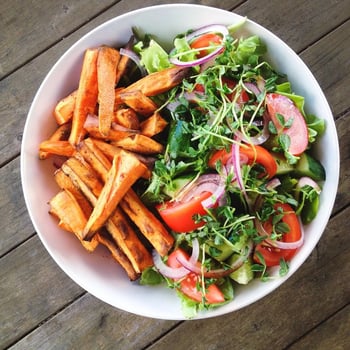 Nathan: When I have a cheat meal I go for something along the lines of steak, I really enjoy steak; instead of chips I would have sweet potato fries and a side salad; that would be quite a healthy cheat meal.
Nathan: When I have a cheat meal I go for something along the lines of steak, I really enjoy steak; instead of chips I would have sweet potato fries and a side salad; that would be quite a healthy cheat meal.
It’s all about making choices, so instead of having a takeaway pizza, try making your own from fresh produce. It’s about trying to still make the best choices even though you’re straying away from your nutrition plan.
Christina: So cheating, but cheating sensibly.
Nathan: Correct, yes.
Christina: I think I’ve already covered how often we should eat cheat meals. It’s really only once a week, was it?
Nathan: It really depends on how many meals you eat each day; the rule is normally around 5%. So for every twenty meals that you eat, you should have one cheat meal. So five meals a day would allow you to cheat on every fifth day, four meals a day would be a cheat every sixth day. As I mentioned earlier, it should be the last meal of the day; but it’s based on how many meals you eat throughout the day.
Christina: Should we cheat when we’re hungry then?
Nathan: Not really, because cheat meals – as I mentioned earlier – should always be planned and not just off the cuff. Cheating when you’re hungry also will allow you to just go and choose whatever you want.
It’s like if you were to go shopping at your local supermarket and you’re hungry, you always tend to find the wrong things. You pick up whatever you want; you’re not in a position to make the right choices.
If you’ve scheduled a cheat meal and you’re hungry, that’s absolutely fine, but you shouldn’t just cheat because you think, ‘I feel pretty hungry, this is going to be really easy.’
Christina: Consuming cheat meals can lead to a better body, but what about people that are sticking to a nutrition diet and they don’t use cheat meals – is it better or worse, or will it have the same effect?
Nathan: I think if you’re sticking to quite a nutritious guidance plan, you basically want to have cheat meals in your diet. As I mentioned, it does increase metabolism, and when your body gets used to a lower calorie intake, your metabolism can slow down and fat loss can then become harder. So increasing calories through a cheat meal would actually re-ignite metabolism.
As I say, it does make a big difference to how hard you can train, so eating very low carbohydrate for long periods won’t allow your muscles to recover as quickly and you basically won’t be able to train as hard in your next session.
Christina: How many cheat meals can I have, or is the limit different for everybody or is that percentage that you gave us earlier the same?
Nathan: In terms of limiting your cheat meals, you only want to eat as much as you need in one sitting in that 5% of your meals. It should be similar for anybody who is eating for fat loss. What a lot of people tend to do is they can basically eat their cheat meal and then think ‘I’m not going to eat all of this, I’m going to save some for later,’ and obviously that can lead to eating more bad food and turning into a cheat day.
Another good thing is to see how rough you feel the next day, because if you do feel rough, if you do feel really under the weather, you want to reduce the amount you eat next time. So it’s all about learning through experience really and not going overboard; it’s a meal, not a free for all.
Christina: Can cheat meals actually make you feel bad then?
Nathan: They can do; if you’ve not been eating much sugar and you go and pile a load of sugar into your body in one go, it can make you feel quite rough the next day. Also, if you’re not eating things like gluten and wheat, a lot of people are intolerant to gluten, so if you cut that out of your diet completely and then go and eat a lot of it in a cheat meal, the next day you can feel a little bit under the weather. Some people even say that gluten can make them feel sore, it can cause inflammation and make them feel like they’ve got sore joints.
Christina: And that wouldn’t be a good combination with working out.
Now most people who are dieting to lose weight tend to cut down on their carbohydrate intake; can this be a problem for people who want to train?
Nathan: Carbohydrates are forms of sugar, which are actually then digested and stored as glycogen or body fat, depending on how you’ve been eating prior to that meal. Glycogen is stored in limited amounts in the muscles and liver for exercise, and also energy productions.
So basically, if you cut your carbohydrates very, very low, you’re not going to fuel the muscle in the correct way to allow to allow you to lift as heavy as possible, or with as much intensity as possible, because your glycogen stores are going to be depleted. After a cheat meal, your glycogen store should be replenished and then you should feel actually quite refreshed and energetic when you get the right balance of meal.
Christina: What else do people who are on a diet need to keep in mind when working out regularly?
Nathan: If it’s very low carb, you want to make sure you get enough protein and natural fats in to keep your calorie intake up; carbohydrates can form a big part of many people’s diets and just cutting those carbs out won’t really allow you to have enough energy for training if you’re not replacing them with protein and natural fat.
So you always want to eat before training, it’s always a very important one, probably about an hour and a half before training; and try to eat little and often, rather than three big meals a day, because this helps to keep your metabolism up and fat burning very high.
If you are going to eat carbs after training, you want to aim for complex carbs, such as sweet potato and quinoa.
Christina: In that case, you say that three meals a day is not the best way to eat; how many times a day should people be eating?
Nathan: It really depends, but I think probably four to six I would say, for fat loss and muscle build. It’s all about, as I say, having smaller, more regular meals to allow your body to regulate metabolism properly and keep your hormone levels regulated properly.
Christina: So basically, consistency, smaller meals and more often. What are the requirements for a healthy diet? You’ve already mentioned that it’s a good idea to eat regularly, little and often; but what about people who fad diet? For example, the Atkins diet was all the rage a while back; is that a healthy way to lose weight?
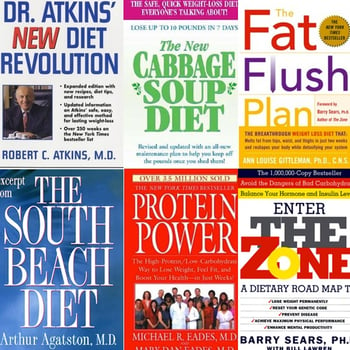 Nathan: We try to promote a lifestyle change at the DVCC, because a diet actually has a start and an end for a lot of people. They decide they want to lose fat and get into better shape, and what happens is that when they’ve lost the weight they go back to their normal lifestyle, their normal habits, and it doesn’t actually produce long term, lasting results.
Nathan: We try to promote a lifestyle change at the DVCC, because a diet actually has a start and an end for a lot of people. They decide they want to lose fat and get into better shape, and what happens is that when they’ve lost the weight they go back to their normal lifestyle, their normal habits, and it doesn’t actually produce long term, lasting results.
So what a lot of people ought to do is try to eat whole foods and natural produce over ready made or packaged meals; plenty of green vegetables and protein and natural fat with every meal. As I said, with diets, a lot of people drop their calories down because they’ll be eating probably less carbohydrates, then when they eventually get back to their normal lifestyle, when they feel like they’ve lost enough weight, they’ll increase their calorie intake because they’ll go back to eating how they were before.
And the massive amount of calories that they’re taking in from previously to when they were dieting actually has quite a bad effect and a lot of people can end up putting all the weight they lost back on very quickly.
Christina: Going onto that then, if I’m on a diet and I’m eating cheat meals, what’s the best kind of exercise programme I should be following?
Nathan: The best kind of exercise regime for losing fat and eating clean is really kind of high intensity training; so you normally want to go for resistance work that’s going to use weights, and that’s going to allow you to elevate your heart rate, so you want to be doing quite a high amount of repetitions with quite low rests and multiple sets.
Christina: Are cheat meals allowed if people are not working out or is this just for people who are going to the gym?
Nathan: Cheat meals really are ideally for people who are working out and following quite a strict nutrition plan. If you’re not working out, a cheat meal is normally just going to end up storing as fat and it’s not going to have the same effect on your metabolism or the same benefits as if you were following a nutrition programme.
Christina: Why is it important to not skip meals throughout the day?
Nathan: That would be basically because when you skip meals your metabolism slows down, your blood sugar levels drop and from there, what can happen is your hormones don’t balance correctly and you can start storing fat; your body goes into a starvation mode. So it’s ideal to eat small amounts to keep your metabolism boosted and keep those hormone levels at the right place.
Christina: So this could be a problem for people who are very busy or out of the house a lot and they don’t have time to cook. Are there any cheat meals that are good that are ready made or that can be ordered?
Nathan: You can get some places online which will provide meals that are balanced for your goals. They can be quite expensive. What I say to a lot of our clients is that the best thing to do is try and prepare yourself. So, batch cook in the morning, or on a Sunday morning batch cook for three days.
Freeze it or put it in the fridge and then whenever you need food it’s always there, so you can put it into Tupperware and take it with you. That way you know you’ve always got food with you and you don’t have to worry about trying to find food when you’re hungry and maybe making the wrong decisions, the wrong choices.
Christina: Talking of wrong choices, what’s the absolute worst kind of cheat meal that should definitely be avoided?
Nathan: Without a doubt it would be stuff like crisps and sweets, chocolate. Foods that are very high in fat and also in sugar, stuff like takeaway pizzas are probably quite bad, food that is very high in salt.
Really what you want to do is remember a cheat meal should still be a meal, it’s not just a load of rubbish and a chance to really blow out; it still wants to be a meal with some healthy elements to it, but it just strays a little bit away from the normal way of eating.
Christina: So it’s not an ice cream sundae then?
Nathan: No, that wouldn’t be ideal!
Christina: Do you have anything else to add on that?
Nathan: No, that’s everything I wanted to go through.
Christina: Ok, brilliant. The DVCC has centres in Bedford, Milton Keynes, Northampton and Hitchin – and very shortly, Stevenage and central Bedfordshire. So if you’ve been listening to this interview and you’d like to find out more about how the DVCC can help you, then please book an appointment for a DVCC Right Fit phone call at www.theDVCC.com/signup.
